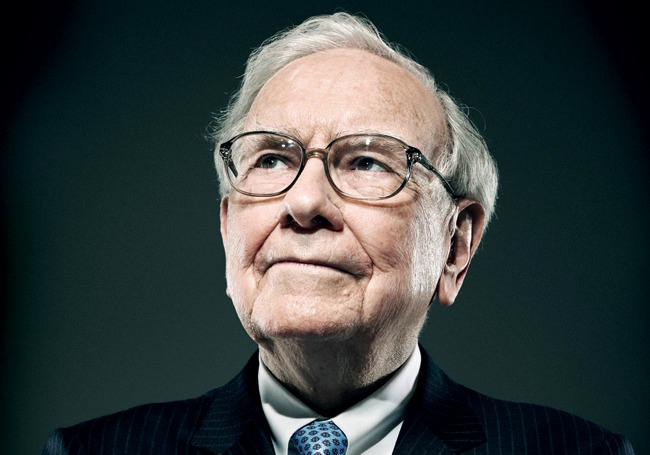[su_heading]POWER OF COMPOUNDING IN STOCKS-:[/su_heading]
[su_dropcap style=” flat” size=”4″]T[/su_dropcap]here is a theory which has been misinterpreted by retail investors about the long-term compounding magic used in investments as advocated and propagated by the greatest investor of all times Warren Buffet. Einstein called [su_quote]” Compounding as the eighth wonder of the world.”[/su_quote] We deep dived into the various interviews and various books written by Warren Buffet and another person whom we admire a lot and has the same investing ideologies as of Mr. Buffet i.e Mohnish Pobrai.
If things were so simple and just holding stocks for the next 10 years would have created wealth, then a lot of retail investors would have become billionaires as they have been holding stocks like Suzlon, Unitech, PSU Banks, Corporate lenders, Utilities, Energy and Power stocks and many others for more than 10 years and even waiting to get back their invested capital.
We got an interesting answer and very important observation when we got. Mr Buffet says that 95% of businesses that comes on his table are too hard to understand. He invests in businesses which are easy to understand and he doesn’t look anything beyond his understanding and restricts his investment universe to a very small subset of stocks. This statement changed our whole approach towards investing and we started to differentiate between long-term and medium-term investing.
[su_heading]WARREN BUFFET STOCK SELECTION APPROACH -:[/su_heading]
He has a very simple investing approach and he invested in simple consumer-facing businesses with good management, with great brands to survive competition, good ROE, good ROCE, Good operating margins, free cash flow generating nature of the business, and low leverage.
He invested into businesses where the penetration levels of those products and categories were in initial stages at the time of investments and he could extrapolate the growth
and cash flows very easily for the next 10 years. He didn’t chase too fast growth but rather stable and predictable growth for the next many years.
[su_heading margin=”30″]GREAT BUSINESS IN INDIA WITH WARREN BUFFET FILTERS AND STRONG MOAT -:[/su_heading]
So, which are great businesses in India which fits these criteria?
Stocks named HDFC Bank, Indus Ind Bank, Kotak Mahindra Bank, Bajaj Finance, Maruti, Hero Moto Corp, Bajaj Auto, HDFC Life, Bandhan Bank, FMCG stocks like Nestle and Britannia, Page Industries, Asian Paints, Pidilte, Dairy stocks, Titan, VIP, and many more. Most of these businesses are consumer-facing businesses which can compound wealth for multi years and without requiring external capital for growth and can grow above 15 % CAGR for many years. These businesses have a self-sustainable business model with a strong moat to survive against rising competition. Also, the great businesses are the ones which survive in tough and uncertain economic environments and are not dependent upon favourable macro and microenvironment . They can generate consistent top line and bottom-line growth while protecting their margins over many years and can throw up a lot of free cash flow.
[su_heading]SECULAR GROWTH SECTORS AND AVOID INVESTING IN CYCLICALS FOR LONG HAUL-:[/su_heading]
Generally, there are few sectors like FMCG, Pharma, IT, Consumers and few select PVT financials can create mega wealth if invested at right time. These are the only sectors which can be held for many many years and even if the stock selection has been poor, then also these stocks will save your capital with good appreciation.
Please, don’t blame your stock advisor, your financial planner, and Warren Buffet because the statement had a deep and implicit meaning which had to be comprehended. Sectors like Metals, Energy, Chemicals, Real Estate, Infra, Capital Goods, and others which require capital for future growth does well in specific periods and cycles and very few stocks survive in the next Business Cycle.EX. The darling of 2007 Bull market created mega-wealth in real estate stocks like DLF, Unitech, and many others. At that time the market cap of DLF was more than the combined market cap of all the pharma stocks put together.
[su_heading]RETAIL INVESTORS SHOULD AVOID DIRECT EQUITY -:[/su_heading]
So, a normal retail investor should avoid direct equity exposure unless he has a good understanding of markets and businesses. He should have dedicated professional guiding him or else he should invest in good quality Mutual Funds. The retail investor should select 3-5 mutual funds across categories and AMCS and can invest in SIP mode for the long haul.
There is famous line by MR. Basant Maheshwari which he quoted in an interview. He said, ” 90 % of the wealth created by retail investors during 4 years of a bull market is being lost in the next 2 years of bear market which follows every bull market .” So, creating wealth is only one part of the game and we should focus more on preserving the gains created during the bull market. The normal public can buy stocks but they don’t know when to sell the stock and how to do asset allocation. There is no point in playing a game which we have not learnt, practised and can lose.


I blog quite often and I really thank you for your information. This
great article has really peaked my interest.
I will book mark your blog and keep checking for new information about once per week.
I subscribed to your RSS feed too.
Someone necessarily help to make significantly posts I might state.
This is the first time I frequented your website page and so far?
I amazed with the analysis you made to create this particular post extraordinary.
Wonderful task!
Great information. Lucky me I ran across your website by chance (stumbleupon).
I have saved as a favorite for later!
It’s impressive that you are getting ideas from this article
as well as from our discussion made at this time.